
The Enigmatic Giant's Causeway: Nature's Masterpiece in Ireland
The Giant's Causeway, located on the northern coast of Ireland in County Antrim, is a breathtaking natural wonder that has fascinated visitors for centuries. This UNESCO World Heritage site is renowned for its unique hexagonal basalt columns, formed by ancient volcanic activity around 60 million years ago. Walking along the causeway, you can see about 40,000 of these interlocking columns stretching out into the sea, creating an almost otherworldly landscape. Legend has it that the Giant's Causeway was built by the Irish giant Fionn mac Cumhaill, or Finn MacCool, as a stepping stone to Scotland to challenge his Scottish rival, Benandonner. The folklore adds an extra layer of mystique to the already stunning geological formations. You can explore the site's history and legends at the award-winning visitor center, which provides an interactive and educational experience. Apart from the iconic basalt columns, the Giant's Causeway area offers numerous walking trails with panoramic views of the rugged coastline and the Atlantic Ocean. The surrounding cliffs and rock formations are home to various bird species, making it a great spot for birdwatching. Whether you're a nature lover, a geology enthusiast, or simply seeking a picturesque escape, the Giant's Causeway promises an unforgettable visit.
Local tips in Giant's Causeway
- Wear sturdy walking shoes as the terrain can be uneven and slippery, especially near the water.
- Visit early in the morning or late in the afternoon to avoid the crowds and enjoy a more serene experience.
- Check the weather forecast and dress in layers, as the coastal weather can be unpredictable and windy.
- Take advantage of the guided tours available at the visitor center to learn more about the geology and folklore of the area.
- Bring binoculars for birdwatching and to get a closer look at the rock formations and the surrounding landscape.
The Enigmatic Giant's Causeway: Nature's Masterpiece in Ireland
The Giant's Causeway, located on the northern coast of Ireland in County Antrim, is a breathtaking natural wonder that has fascinated visitors for centuries. This UNESCO World Heritage site is renowned for its unique hexagonal basalt columns, formed by ancient volcanic activity around 60 million years ago. Walking along the causeway, you can see about 40,000 of these interlocking columns stretching out into the sea, creating an almost otherworldly landscape. Legend has it that the Giant's Causeway was built by the Irish giant Fionn mac Cumhaill, or Finn MacCool, as a stepping stone to Scotland to challenge his Scottish rival, Benandonner. The folklore adds an extra layer of mystique to the already stunning geological formations. You can explore the site's history and legends at the award-winning visitor center, which provides an interactive and educational experience. Apart from the iconic basalt columns, the Giant's Causeway area offers numerous walking trails with panoramic views of the rugged coastline and the Atlantic Ocean. The surrounding cliffs and rock formations are home to various bird species, making it a great spot for birdwatching. Whether you're a nature lover, a geology enthusiast, or simply seeking a picturesque escape, the Giant's Causeway promises an unforgettable visit.
When is the best time to go to Giant's Causeway?
Iconic landmarks you can’t miss
National Trust - Giant's Causeway Visitor Centre
Explore the stunning Giant's Causeway Visitor Centre, the gateway to Northern Ireland's iconic natural wonder with rich history and breathtaking views.
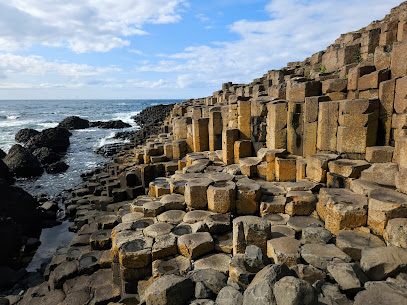
National Trust - Carrick-a-Rede
Experience the thrill of crossing Carrick-a-Rede Rope Bridge, a breathtaking connection to nature and history on Northern Ireland's stunning coastline.
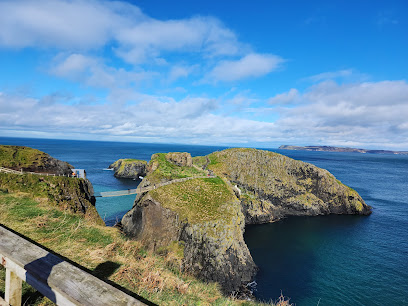
Dunluce Castle
Discover the enchanting Dunluce Castle, a medieval fortress overlooking the Antrim Coast, rich in history and stunning landscapes.
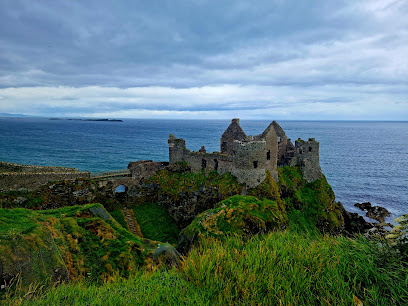
National Trust - Mussenden Temple and Downhill Demesne
Discover the breathtaking Mussenden Temple and Downhill Demesne, a stunning blend of nature, history, and coastal views in Northern Ireland.
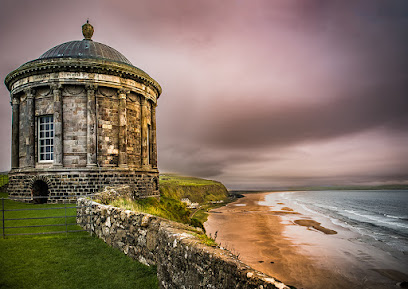
Giant's Causeway & Bushmills Railway
Discover the breathtaking landscapes and geological marvels of Giant's Causeway, paired with a charming journey on the historic Bushmills Railway.
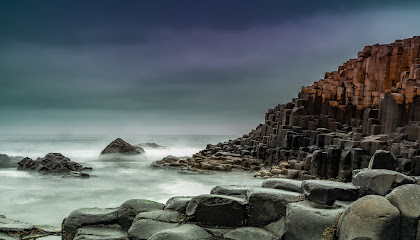
National Trust - Glenoe
Experience the enchanting Glenoe Waterfall in Northern Ireland, where nature's beauty takes center stage amidst lush landscapes and tranquil settings.
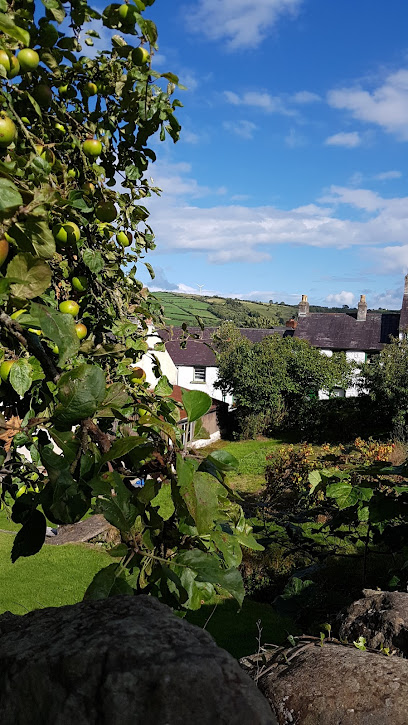
Causeway Coastal Route
Discover the stunning landscapes and rich heritage along the Causeway Coastal Route, a scenic journey through Northern Ireland's breathtaking coastline.
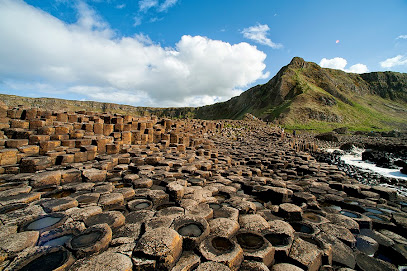
Shepherd's Steps
Explore the breathtaking Shepherd's Steps, a natural preserve leading to the iconic Giant's Causeway with stunning coastal views and unique geological formations.
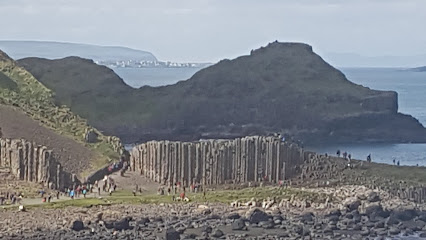
National Trust - White Park Bay
Experience the unspoiled beauty of White Park Bay, where dramatic landscapes meet serene beaches in Northern Ireland's breathtaking coastline.
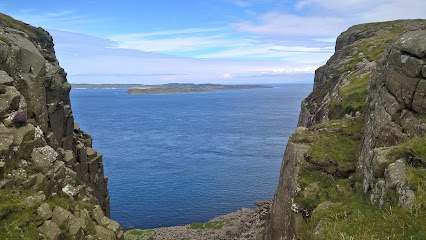
Portcoon Jetty
Discover the serene beauty of Portcoon Jetty, a breathtaking coastal escape in Northern Ireland, perfect for photography and nature lovers alike.
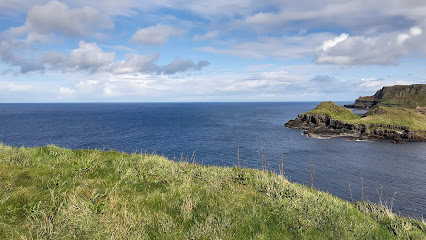
National Trust Barmouth Bird Hide
Discover the beauty of wildlife in its natural habitat at Barmouth Bird Hide, a serene nature preserve in Northern Ireland perfect for birdwatching.
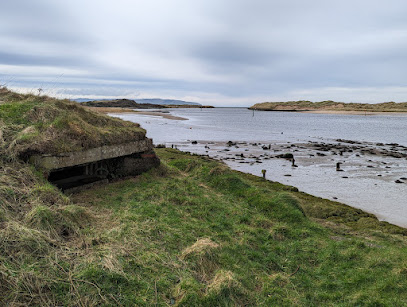
Giant's Causeway Viewpoint
Experience the stunning vistas of the Giant's Causeway Viewpoint, a UNESCO World Heritage Site showcasing Northern Ireland's natural beauty.
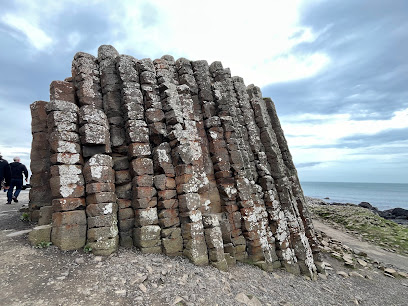
Giants Causeway Carpark
Explore the breathtaking Giants Causeway Carpark, the gateway to Northern Ireland's iconic natural wonder and captivating myths.
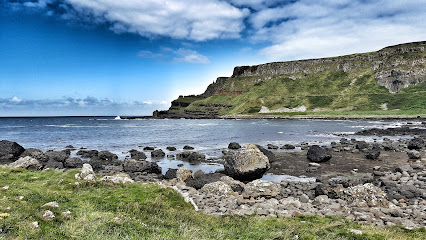
Amphitheatre Viewpoint - End of the cliffwalk
Discover the breathtaking panoramas at Amphitheatre Viewpoint in Bushmills, an iconic coastal destination showcasing Northern Ireland's stunning landscapes.
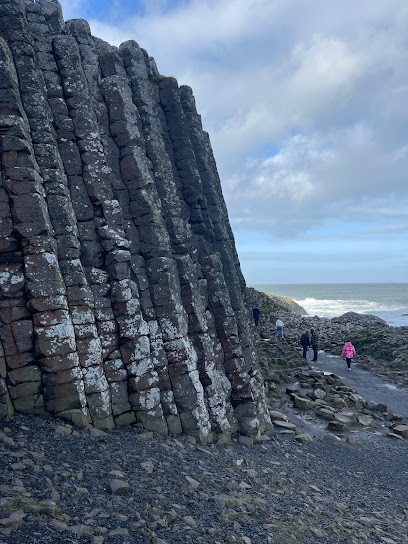
Unmissable attractions to see
Cushendun Caves
Explore the breathtaking Cushendun Caves, a stunning natural attraction in Northern Ireland known for its unique rock formations and rich cultural history.
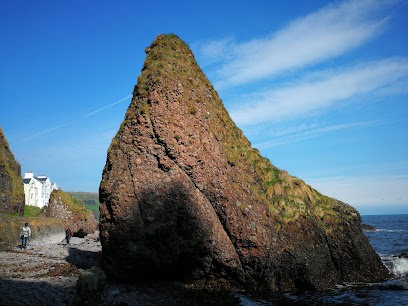
Portaneevy Car Park & Viewpoint
Discover stunning views of Rathlin Island and the Scottish Isles at Portaneevy Car Park & Viewpoint in Ballycastle, Northern Ireland.
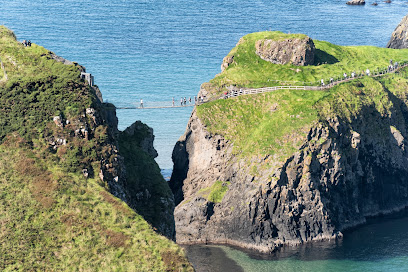
Kinbane Castle
Explore the breathtaking Kinbane Castle, a historic gem on Northern Ireland's coast, where stunning views and rich history await every traveler.
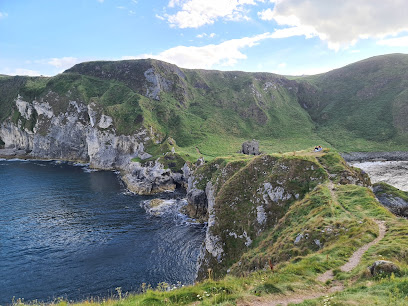
Torr Head
Explore Torr Head, a breathtaking coastal headland in Northern Ireland known for its stunning views, rich history, and scenic hiking trails.
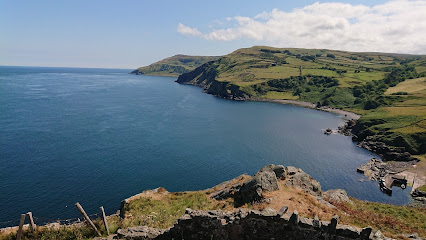
Shepherd's Steps
Discover the breathtaking beauty of Shepherd's Steps, a must-visit hiking destination near the iconic Giant's Causeway in Northern Ireland.
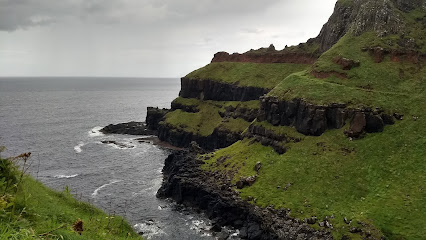
National Trust - Portstewart Strand
Experience the serene beauty of Portstewart Strand, a magnificent beach and nature preserve perfect for relaxation and outdoor adventures.
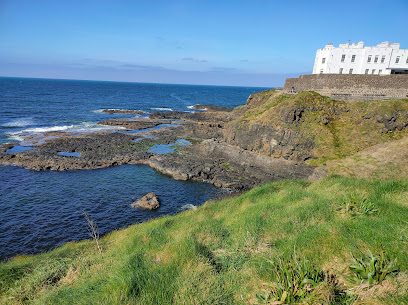
National Trust - White Park Bay
Experience the untouched beauty of White Park Bay, where golden sands meet rugged cliffs, creating a paradise for nature lovers and adventure seekers.
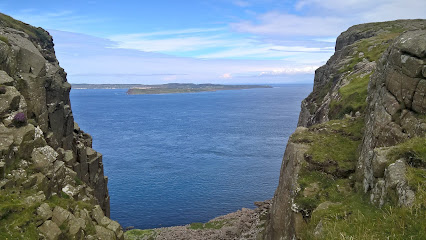
Portrush Coastal Zone
Explore the breathtaking landscapes and thrilling adventures at Portrush Coastal Zone, a natural paradise on the Northern Irish coast.
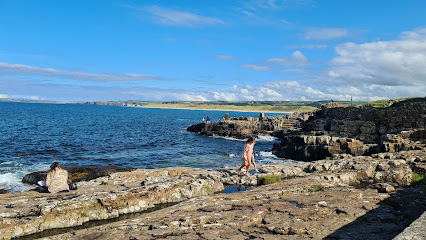
Glenariff Forest
Explore the breathtaking beauty of Glenariff Forest in Ballymena, a haven of lush landscapes, serene trails, and stunning waterfalls.
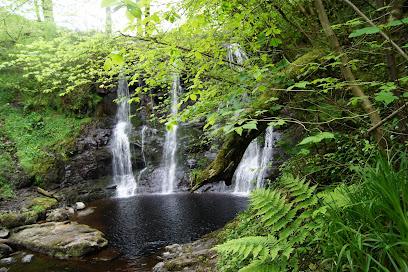
Seamus Heaney HomePlace
Explore the life and legacy of Nobel Laureate Seamus Heaney at his beautifully crafted HomePlace in Bellaghy, a hub for literature and culture.
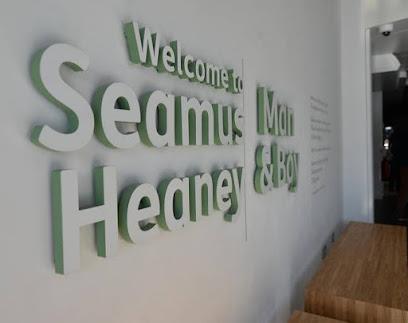
Bay of the Cow
Experience the breathtaking beauty of the Bay of the Cow, a serene coastal gem near Bushmills, Northern Ireland, rich in wildlife and stunning landscapes.
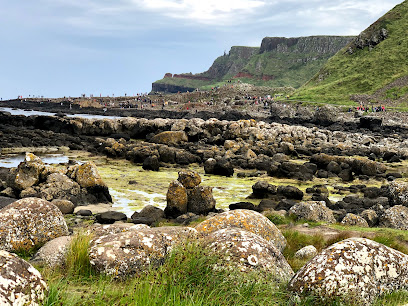
Portbradden Harbour
Experience the stunning coastal views and serene atmosphere at Portbradden Harbour, a hidden gem on Northern Ireland's Antrim coast.
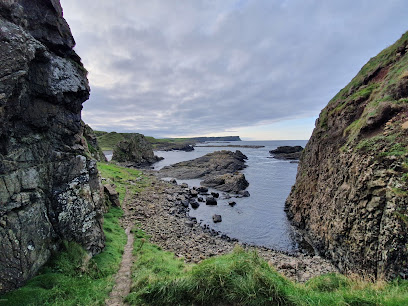
Bonamargy Friary (State Care Monument)
Experience the serene beauty and rich history of Bonamargy Friary, a captivating medieval landmark nestled in the heart of Ballycastle, Northern Ireland.
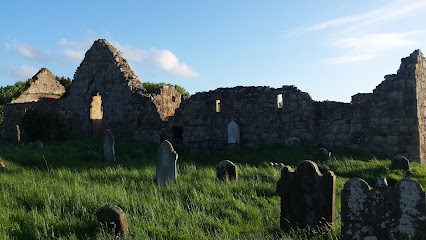
White Rocks Beach
Discover the stunning White Rocks Beach in Portrush, Northern Ireland's coastal paradise with golden sands and breathtaking cliffs.
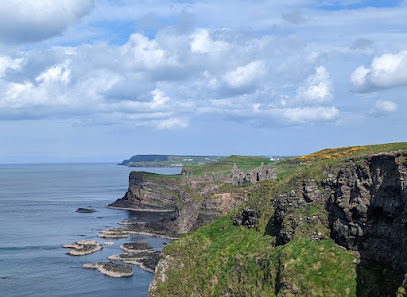
Portcoon Jetty
Explore the picturesque Portcoon Jetty in Northern Ireland, a breathtaking scenic spot perfect for nature lovers and unforgettable views.
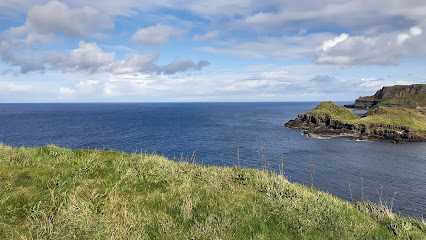
Essential places to dine
The Tides Restaurant
Experience modern European cuisine at The Tides Restaurant in Portrush with stunning coastal views and exceptional service.
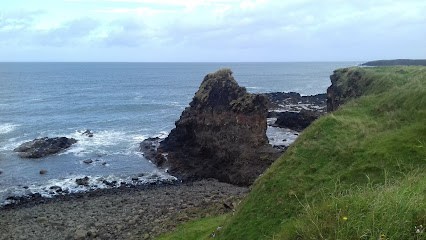
55 Degrees North | Restaurant | Bistro | Cafe
Discover culinary excellence at 55 Degrees North Bistro in Portrush – where local flavors meet stunning coastal views.
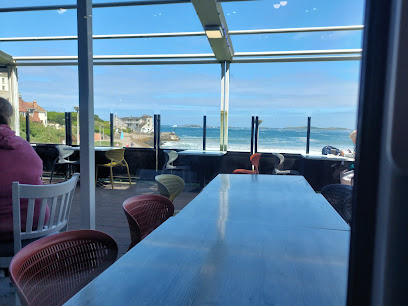
Amici Ristorante
Discover authentic Italian cuisine at Amici Ristorante in Portstewart - where every meal is a celebration of flavor and hospitality.
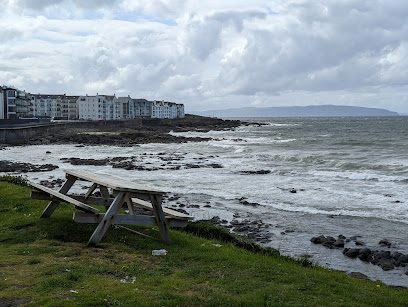
The Fullerton Arms
Experience authentic Irish hospitality at The Fullerton Arms – your ideal base for exploring Northern Ireland’s stunning coastline.

Harry's Shack
Experience fresh seafood with stunning ocean views at Harry's Shack in Portstewart - a must-visit culinary destination.
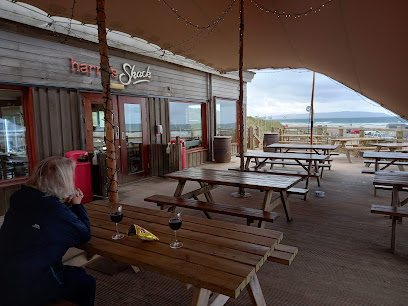
Dunsilly Hotel
Discover comfort and charm at Dunsilly Hotel in Antrim - your perfect retreat with exceptional dining options.

The Causeway Hotel
Discover comfort and stunning views at The Causeway Hotel near the iconic Giant's Causeway in Northern Ireland.

The Rabbit Hotel & Retreat
Discover luxury at The Rabbit Hotel & Retreat in Ballyclare - where nature meets comfort with exquisite dining and spa experiences.
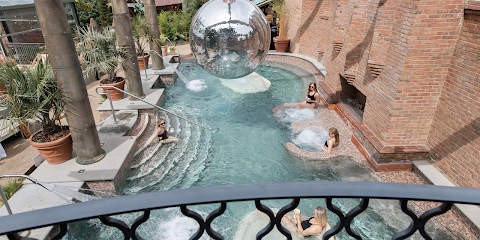
Laragh Lodge Restaurant
Discover Laragh Lodge Restaurant: A Culinary Delight Offering Authentic Irish Dishes Amidst Scenic Ballymena Landscapes.
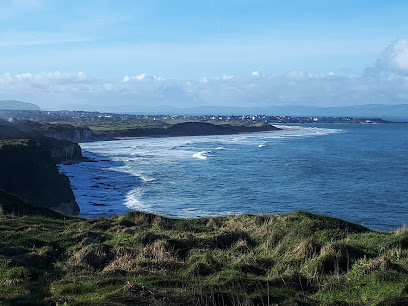
The Nook
Discover delicious seafood at The Nook in Bushmills—where local flavors meet stunning coastal views for an unforgettable dining experience.
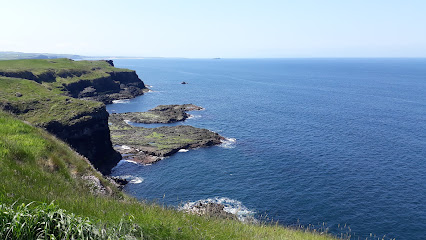
The Anchor Bar Complex
Experience coastal charm at The Anchor Bar Complex in Portstewart—where great food meets live entertainment in an inviting atmosphere.
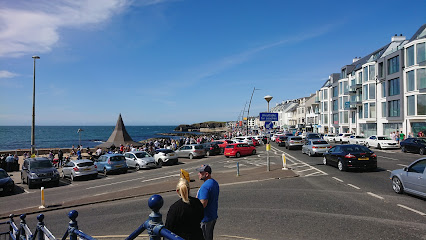
Bothy White Park Bay
Experience delightful breakfasts and exquisite coffee at Bothy White Park Bay, nestled on Northern Ireland's scenic coastline.
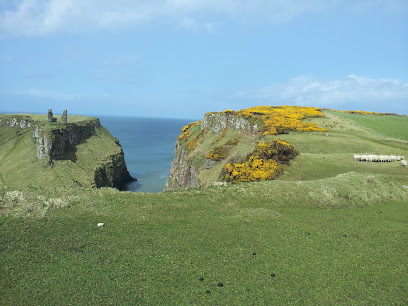
Harrys Cushendall
Discover Harry's Cushendall: A seafood haven on Northern Ireland's stunning Causeway Coast with diverse dishes for every palate.
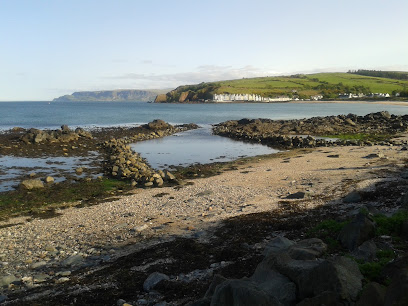
Villa Portstewart
Experience exquisite grilled cuisine with stunning ocean views at Villa Portstewart – where every meal is a seaside delight.
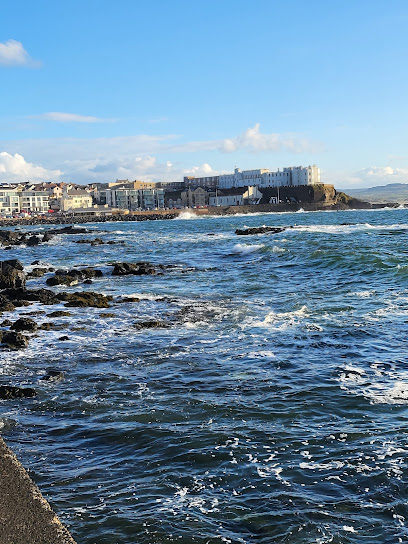
Neptune & Prawn
Discover exquisite seafood dishes blended with Asian influences at Neptune & Prawn in Portrush – where flavor meets oceanic beauty.
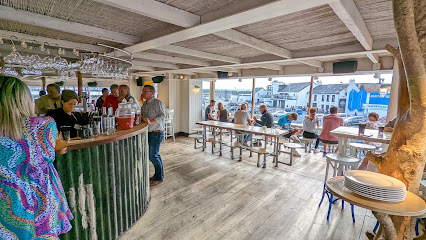
Markets, malls and hidden boutiques
Giant's Causeway
Explore the breathtaking beauty of Giant's Causeway, a UNESCO World Heritage Site with unique geological formations and rich mythology on Ireland's northern coast.
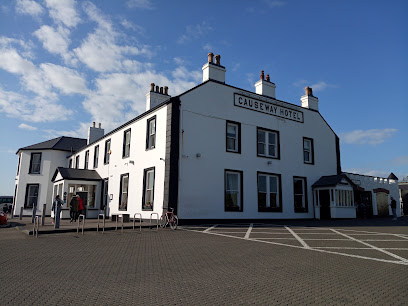
Creative Gardens Bushmills
Discover the enchanting Creative Gardens Bushmills, where vibrant flora meets exquisite outdoor furnishings in a serene setting.
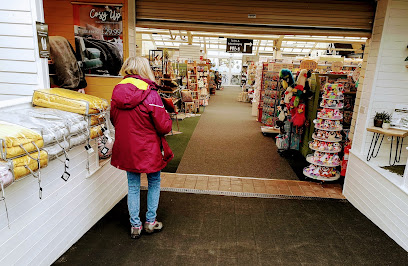
MAEGDEN
Explore the distinct flavors of Maegden, a charming cheese and ham shop in Bushmills, offering artisanal delights from Northern Ireland.
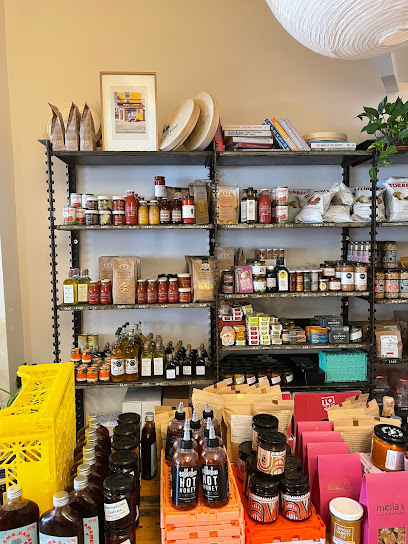
Lilly's
Discover the cozy charm of Lilly's in Bushmills, where delightful coffee and homemade treats await in a picturesque setting.
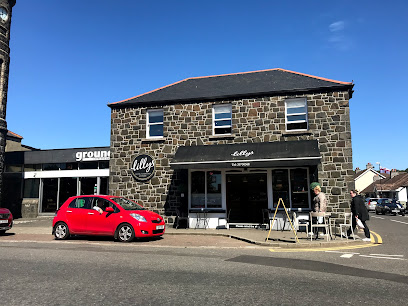
Co-op Food - Bushmills
Discover essential convenience and local flavors at Co-op Food in Bushmills, your one-stop shop for all travel necessities.
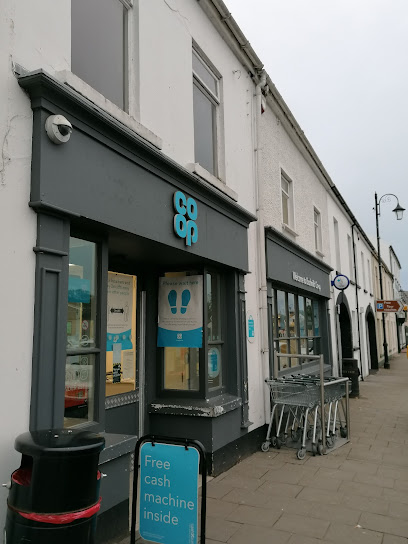
The Designerie
Discover unique handmade crafts and local artistry at The Designerie in Bushmills, a perfect stop for tourists seeking authentic souvenirs.
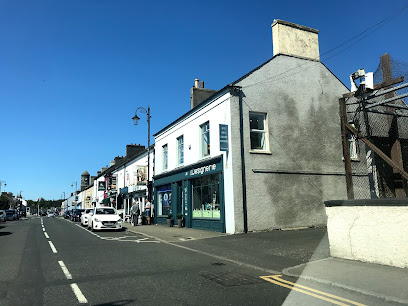
CentraBushmills
Discover the flavors of Northern Ireland at CentraBushmills, your local supermarket for fresh produce and regional delights.
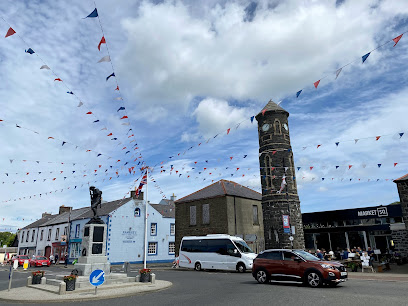
Giants Causeway Carpark
Discover Northern Ireland's natural wonder at Giants Causeway, a UNESCO World Heritage Site with stunning basalt columns and breathtaking coastal views.
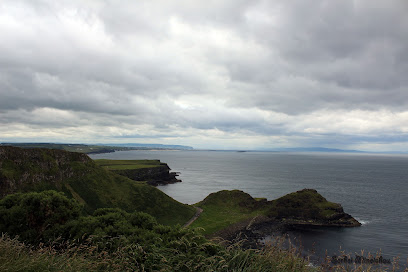
SPAR Bushmills
Explore SPAR Bushmills, your go-to convenience store for essentials and local treats in the picturesque town of Bushmills, Northern Ireland.
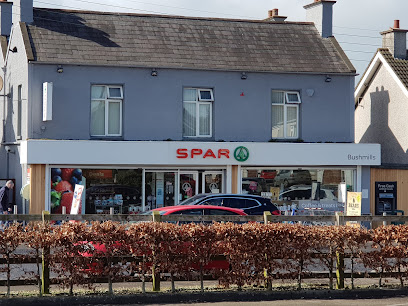
Causeway Tackle
Explore Causeway Tackle in Portballintrae for top-notch fishing gear and expert advice in a charming coastal setting.
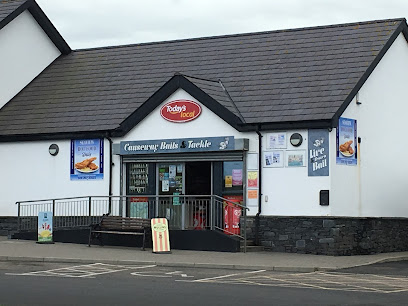
Pets At The Causeway
Discover the finest pet supplies in Bushmills at Pets At The Causeway, a delightful store for pet lovers and their furry friends.
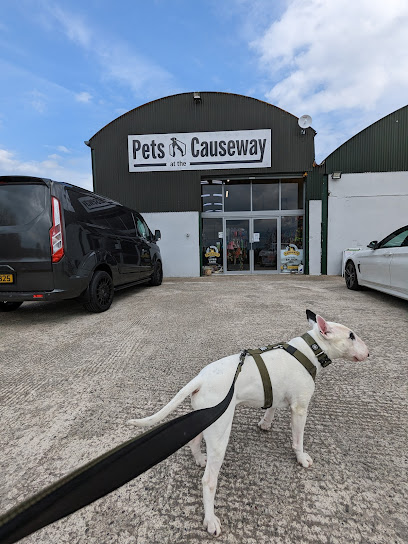
Old Bushmills Distillery Gift Shop
Explore the Old Bushmills Distillery Gift Shop for unique whiskey memorabilia and local artisan crafts in the heart of Northern Ireland.
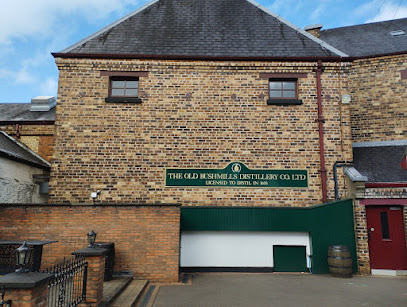
Therapy Style Studio
Explore unique women's fashion at Therapy Style Studio in Bushmills, a charming boutique offering stylish apparel and personalized service.
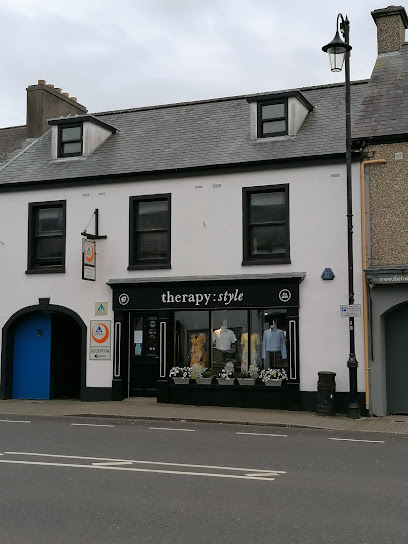
The Souvenir Shop
Discover unique gifts and local treasures at The Souvenir Shop in Portrush, the perfect spot for memorable souvenirs and artisan finds.
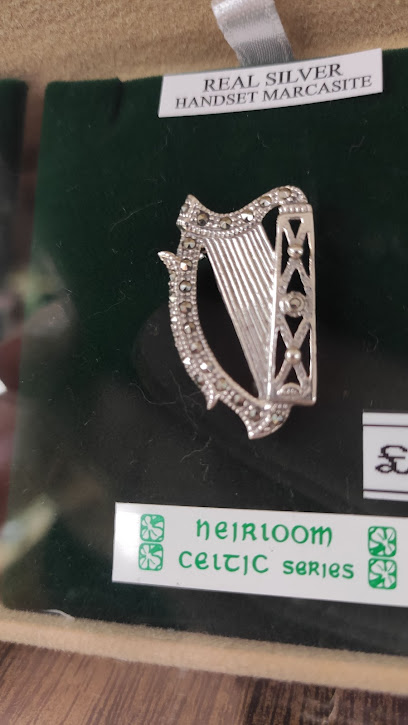
PORTRUSH TOYS AND SOUVENIRS
Explore Portrush Toys and Souvenirs for unique gifts and local memorabilia that capture the charm of this coastal gem.
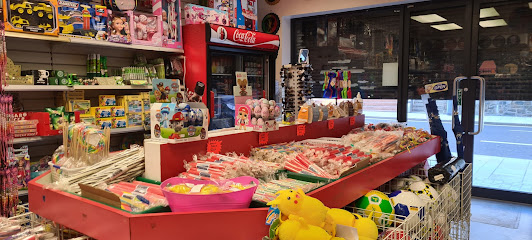
Essential bars & hidden hideouts
Kiwi's Brew Bar
Discover the flavors and sounds of Portrush at Kiwi's Brew Bar, where great food meets live entertainment in a cozy atmosphere.
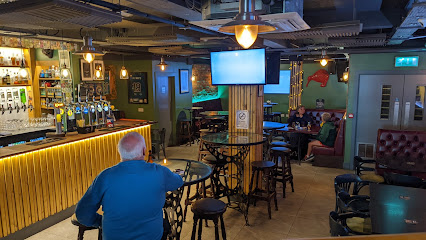
The Nook
Experience the best of local seafood at The Nook, where Northern Irish flavors meet cozy hospitality in Bushmills.
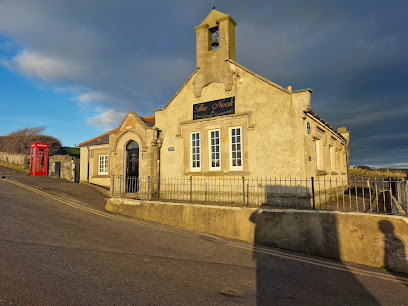
The Anchor Bar Complex
Explore the lively atmosphere of The Anchor Bar Complex in Portstewart, where great food, music, and hospitality come together for an unforgettable night out.
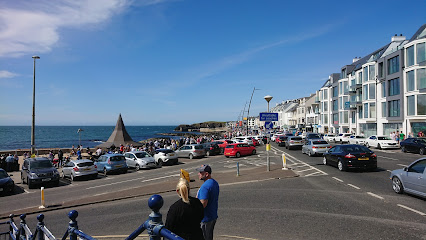
The Quays Bar & Gastropub
Experience the best of Irish cuisine and a vibrant atmosphere at The Quays Bar & Gastropub in Portrush, where great food meets coastal charm.
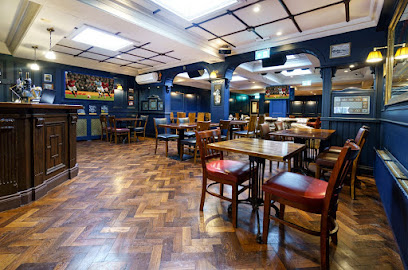
The Harbour Bar
Experience the charm of The Harbour Bar in Portrush, where traditional Irish hospitality meets stunning coastal views and delicious local cuisine.
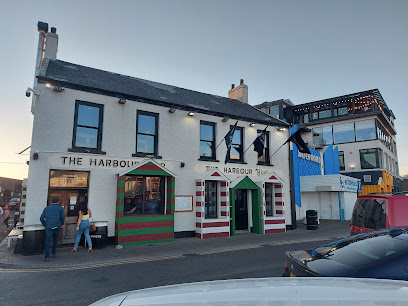
Tartine at the Distillers Arms
Discover the exquisite flavors of Modern European cuisine at Tartine, the culinary jewel of Bushmills, offering seasonal dishes in a cozy setting.
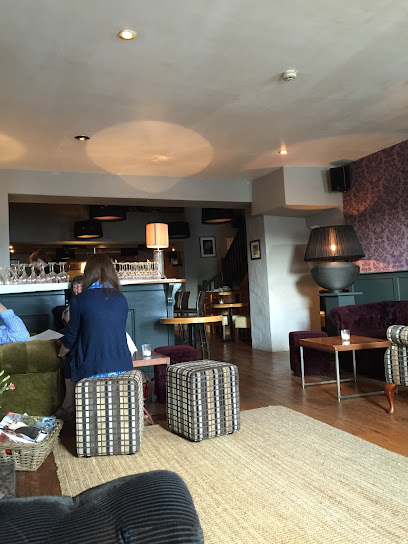
Harbour Gin Bar
Experience the best of Portrush's cocktail culture at Harbour Gin Bar, where creative drinks meet stunning harbor views.
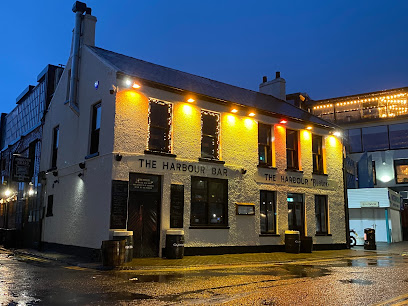
The Bush House Bar
Experience traditional Irish hospitality at The Bush House Bar, a cozy pub in Bushmills with local ales, hearty meals, and a friendly atmosphere.
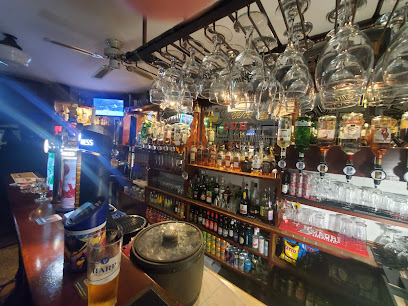
Springhill Bar
Experience the charm of Springhill Bar in Portrush, where great drinks and delicious pub fare await in a cozy atmosphere.
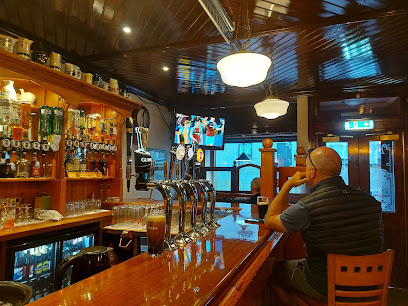
Carrick-A-Rede Bar and Restaurant
Discover Carrick-A-Rede Bar and Restaurant, where delicious Irish cuisine meets stunning coastal views in Ballintoy.
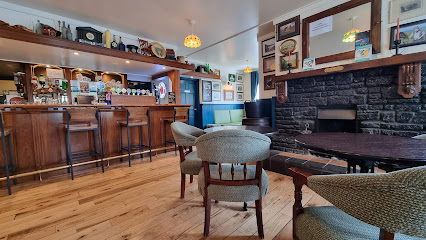
Bayview Hotel
Experience unparalleled comfort and sweeping coastal views at Bayview Hotel, where exceptional dining meets serene surroundings in Portballintrae.

The Station Bar
Experience the best of Portrush nightlife at The Station Bar, where live music, great drinks, and a welcoming atmosphere await.
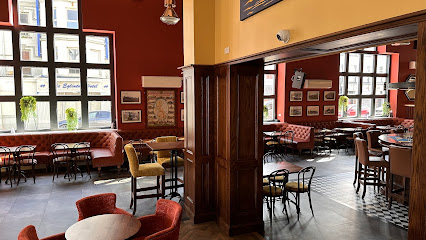
The Bushmills Inn Restaurant and Bar
Experience the perfect blend of traditional Irish cuisine and modern dining at The Bushmills Inn Restaurant and Bar, a culinary treasure in Northern Ireland.
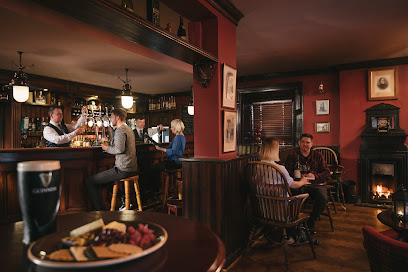
The Scotch House Bar
Discover the lively atmosphere of The Scotch House Bar in Bushmills, where traditional Irish music meets delicious pub fare and a warm welcome.
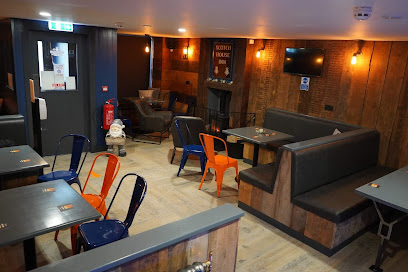
Local Phrases about Giant's Causeway
-
- HelloDia dhuit
[dee-ah ghwit] - GoodbyeSlán
[slawn] - YesTá
[taw] - NoNíl
[neel] - Please/You're welcomeLe do thoil
[leh duh hull] - Thank youGo raibh maith agat
[guh rev mah agut] - Excuse me/SorryTá brón orm
[taw brohn or-um] - How are you?Conas atá tú?
[kun-us a-taw too] - Fine. And you?Tá mé go maith. Agus tú?
[taw may guh mah. ah-gus too] - Do you speak English?An bhfuil Gaeilge agat?
[ahn will gayl-geh ag-ut] - I don't understandNí thuigim
[neel hug-eem]
- HelloDia dhuit
-
- I'd like to see the menu, pleaseBa mhaith liom an mianu a fheiceáil, le do thoil
[ba waw lum on mee-an-oo ah eck-ayl, leh duh hull] - I don't eat meatNí ithim feoil
[neel ih-him foh-il] - Cheers!Sláinte!
[slawn-chuh] - I would like to pay, pleaseBa mhaith liom íoc, le do thoil
[ba waw lum ee-uk, leh duh hull]
- I'd like to see the menu, pleaseBa mhaith liom an mianu a fheiceáil, le do thoil
-
- Help!Cabhraigh!
[ka-vree] - Go away!Imigh uaim!
[ih-mee ooh-um] - Call the Police!Glan an Garda!
[glan ahn gar-dah] - Call a doctor!Glan an dochtúir!
[glan ahn duck-too-ir] - I'm lostTá mé caillte
[taw may kall-cheh] - I'm illTá mé tinn
[taw may chin]
- Help!Cabhraigh!
-
- I'd like to buy...Ba mhaith liom ceannach...
[ba waw lum can-ukh] - I'm just lookingNíl ach ag amharc
[neel okh eg ow-ark] - How much is it?Cé mhéad atá air?
[kay vayd a-taw er] - That's too expensiveTá sé ró-dháiríre
[taw shay row-gaw-reh] - Can you lower the price?An féidir leat an praghas a ísliú?
[ahn fay-dur lat an prah-us ah eesh-lee-oo]
- I'd like to buy...Ba mhaith liom ceannach...
-
- What time is it?Cén t-am é?
[kayn tahm ay] - It's one o'clockTá sé a haon
[taw shay ah hayn] - Half past (10)Leathuair tar éis (10)
[lah-hoo-ir tar aysh] - MorningMaidin
[mah-jin] - AfternoonTráthnóna
[traw-noh-nah] - EveningTráthnóna
[traw-noh-nah] - YesterdayInné
[in-ay] - TodayInniu
[in-yoo] - TomorrowAmárach
[ah-maw-rakh] - 1A haon
[ah hayn] - 2A dó
[ah doh] - 3A trí
[ah tree] - 4A ceathair
[ah kah-her] - 5A cúig
[ah koo-ig] - 6A sé
[ah shay] - 7A seacht
[ah shokht] - 8A hocht
[ah hukht] - 9A naoi
[ah nee] - 10A deich
[ah deh]
- What time is it?Cén t-am é?
-
- Where's a/the...?Cá bhfuil a...
[kaw will ah] - What's the address?Cad é an seoladh?
[kad ay ahn shoh-lah] - Can you show me (on the map)?An féidir leat é a léiriú (ar an léarscáil)?
[ahn fay-dur lat ay ah layr-oo (ar ahn layr-skawl)] - When's the next (bus)?Cathain a thagann an chéad (bus)?
[kah-hin ah hah-gan ahn khayd (bus)] - A ticket (to ....)Ticead (go dtí ....)
[tic-ud (guh dee)]
- Where's a/the...?Cá bhfuil a...
History of Giant's Causeway
-
The Giant's Causeway, located on the northeast coast of Northern Ireland, was formed around 60 million years ago during a period of intense volcanic activity. As the lava cooled rapidly, it contracted and fractured into the distinctive hexagonal columns that we see today. This natural wonder consists of approximately 40,000 interlocking basalt columns, with the majority being hexagonal in shape, although some columns have up to eight sides.
-
According to Irish mythology, the Giant's Causeway was created by the giant Finn McCool (Fionn mac Cumhaill). Legend has it that Finn built the causeway to cross the North Channel to Scotland to confront his rival, the Scottish giant Benandonner. When Finn saw the size of Benandonner, he retreated and disguised himself as a baby. Benandonner, upon seeing the 'baby,' assumed that the father must be a giant among giants and fled back to Scotland, tearing up the causeway behind him to prevent Finn from following.
-
The Giant's Causeway was first documented by the Bishop of Derry, Richard Pococke, in 1753. His detailed descriptions and illustrations brought this natural wonder to the attention of the wider world. The site quickly gained popularity among the scientific community and tourists alike, leading to further studies and explorations.
-
In 1986, the Giant's Causeway was designated as a UNESCO World Heritage Site in recognition of its unique geological formations and natural beauty. The site is also a designated National Nature Reserve, managed by the National Trust. These designations help to preserve the area and ensure its protection for future generations.
-
The Giant's Causeway has had a significant impact on Irish culture, inspiring countless works of art, literature, and music. It has been the subject of numerous poems and stories, and its iconic imagery is often used to represent Northern Ireland. The site's mysterious and dramatic landscape continues to captivate visitors and locals alike.
-
Today, the Giant's Causeway is one of Northern Ireland's most popular tourist attractions, drawing hundreds of thousands of visitors each year. The site features a state-of-the-art visitor center, which offers interactive exhibits, guided tours, and educational programs. The surrounding area also offers stunning coastal walks, picturesque views, and opportunities to explore local wildlife and flora.
Giant's Causeway Essentials
-
The Giant's Causeway is located on the north coast of County Antrim in Northern Ireland. The nearest airport is Belfast International Airport, approximately 80 kilometers away. From Belfast, you can take a train to Coleraine and then a connecting bus to the Giant's Causeway. Alternatively, you can drive from Belfast, which takes around 1.5 hours. There are also guided tours that depart from Belfast and Dublin, offering a convenient option for day trips.
-
Once at the Giant's Causeway, you can explore much of the area on foot. The Causeway Coast Way is a popular walking route that offers stunning views. For those preferring not to walk, a shuttle bus service operates from the Visitor Centre to the Causeway. Taxis are available in nearby towns like Bushmills and Portrush. Car rentals are also an option for those who wish to explore the surrounding areas at their own pace.
-
The official currency in Northern Ireland is the British Pound Sterling (GBP). Credit and debit cards are widely accepted, including at the Giant's Causeway Visitor Centre, restaurants, and shops. It's advisable to carry some cash for smaller purchases or in case you visit rural areas where card payments may not be possible. ATMs are available in nearby towns like Bushmills.
-
The Giant's Causeway is generally a safe destination for tourists. However, it's wise to take common precautions. Keep an eye on your belongings, especially in crowded areas like the Visitor Centre. The coastal paths can be slippery, so wear appropriate footwear and stay within marked areas. There are no specific high-crime areas targeting tourists, but it's always best to stay vigilant.
-
In case of an emergency, dial 999 for immediate assistance. The nearest hospital with emergency services is Causeway Hospital in Coleraine, about 20 kilometers away. The Visitor Centre staff are also trained to handle emergencies and can provide first aid. It's recommended to have travel insurance that covers medical emergencies.
-
Fashion: Do wear comfortable walking shoes and weather-appropriate clothing. Layers are advisable due to the coastal climate. Avoid high heels or unsuitable footwear. Religion: Northern Ireland has a diverse religious population; respect local customs and traditions, especially when visiting churches. Public Transport: Do have exact change for buses, as drivers may not provide change. Don't eat or drink on public transport. Greetings: Do greet people with a friendly 'hello' or 'hi.' Shaking hands is common in formal settings. Eating & Drinking: Do try local delicacies like Irish stew and soda bread. Don't leave a large amount of food uneaten, as it can be considered wasteful.
-
To experience the Giant's Causeway like a local, visit early in the morning or late in the afternoon to avoid the crowds. Take the time to explore the less-visited trails and nearby attractions like Dunluce Castle and the Carrick-a-Rede Rope Bridge. Engage with local guides who can share fascinating stories and historical insights. Don't miss out on tasting the local whiskey at the Bushmills Distillery, one of the oldest distilleries in the world.
Trending Landmarks in Giant's Causeway
-
National Trust - Giant's Causeway Visitor Centre
-
National Trust - Carrick-a-Rede
-
Dunluce Castle
-
National Trust - Mussenden Temple and Downhill Demesne
-
Giant's Causeway & Bushmills Railway
-
National Trust - Glenoe
-
Causeway Coastal Route
-
Shepherd's Steps
-
National Trust - White Park Bay
-
Portcoon Jetty
-
National Trust Barmouth Bird Hide
-
Giant's Causeway Viewpoint
-
Giants Causeway Carpark
-
Amphitheatre Viewpoint - End of the cliffwalk
Nearby Cities to Giant's Causeway
-
Things To Do in Belfast
-
Things To Do in Glasgow
-
Things To Do in Peel
-
Things To Do in Kirk Michael
-
Things To Do in Sligo
-
Things To Do in Drogheda
-
Things To Do in Ramsey
-
Things To Do in Port Erin
-
Things To Do in Port St Mary
-
Things To Do in Ballasalla
-
Things To Do in Laxey
-
Things To Do in Castletown
-
Things To Do in Onchan
-
Things To Do in Douglas
-
Things To Do in Stirling











